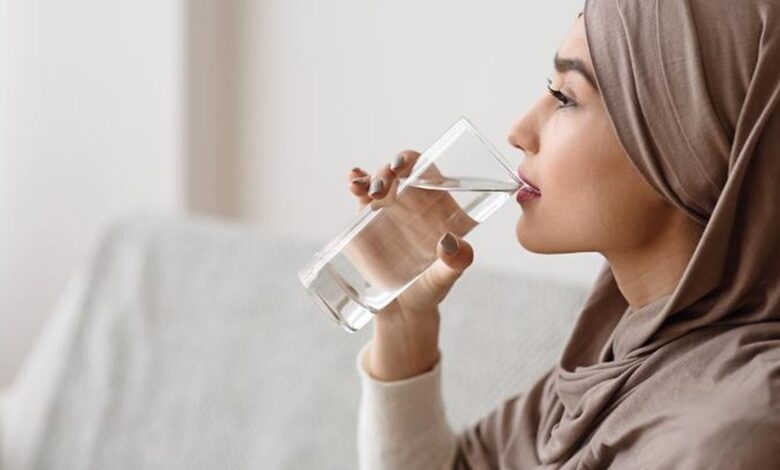Drink 8 Glasses of Thirst Tricks During Fasting

DDHK. ORG - Thirst during fasting is something that almost everyone experiences on the first day of fasting during Ramadan.
Reporting from Republika, clinical nutritionist Eva Kurniawati provides tips so that the liquid needs of people who fast during Ramadan can be met. The trick is to divide the drinking time into eight different times.
Eva, who is a member of the Association of Indonesian Clinical Nutrition Specialists, explained that the eight appointments are:
One glass after waking up
One glass after breakfast
One glass when breaking
One glass after maghrib prayer
One glass after dinner
One glass after the evening prayer
One glass after tarawih prayer
One glass before bed.
"To add liquid, try cooking the vegetables in the broth for a while dawn and open, and the broth is consumed at the same time, by consuming the broth we increase fluid intake for the body as well," said Eva.
A person is advised to get enough water every day is important to prevent dehydration. This condition can cause an unclear mind, cause mood swings, cause the body to overheat, and cause constipation and kidney stones.
According to the United States Centers for Disease Control and Prevention (CDC), water has no calories. Water can help manage your weight and reduce your calorie intake if you replace it with a high-calorie drink, such as sweetened tea or soda.
The Ministry of Health recommends that adults drink around eight glasses of 230 ml of water per day or a total of two liters. Apart from drinks, food can also provide fluid intake to the body, which is around 20 percent.
Liquid from food is mainly obtained from fruits and vegetables, for example spinach and watermelon which contain 90 percent water. Regarding efforts to prevent dehydration during fasting, Eva also advises people to avoid caffeinated drinks during iftar and sahur because they have a diuretic effect that can increase the risk of dehydration.
Furthermore, regarding caffeine, nutrition expert Rowaidah Idris told Arab News that people try to reduce caffeine intake a month before Ramadan. However, if you can't do that, then drinking enough water during sahur and breaking your fast, getting enough sleep, and reducing sugar intake, and avoiding high-fat foods can help overcome symptoms of addiction.
Nutritionist Anjali Chawla says exercising can help a person reduce caffeine. Because, this activity makes him sweat, releases adrenaline like coffee and will make him feel alert.
Both Idris and Chawla agree that drinking coffee during or after breaking the fast and sahur will make a person experience insomnia and dehydration which will be a challenge during fasting.
Both also suggest people reduce their intake of caffeine not only during Ramadan but in the following months. Excessive caffeine intake can cause various side effects both mental and physical. [DDHK News]



